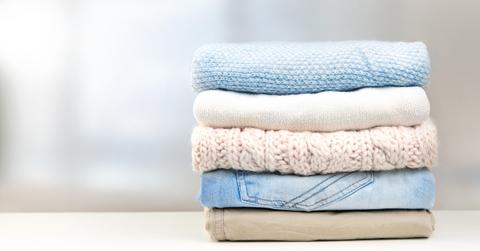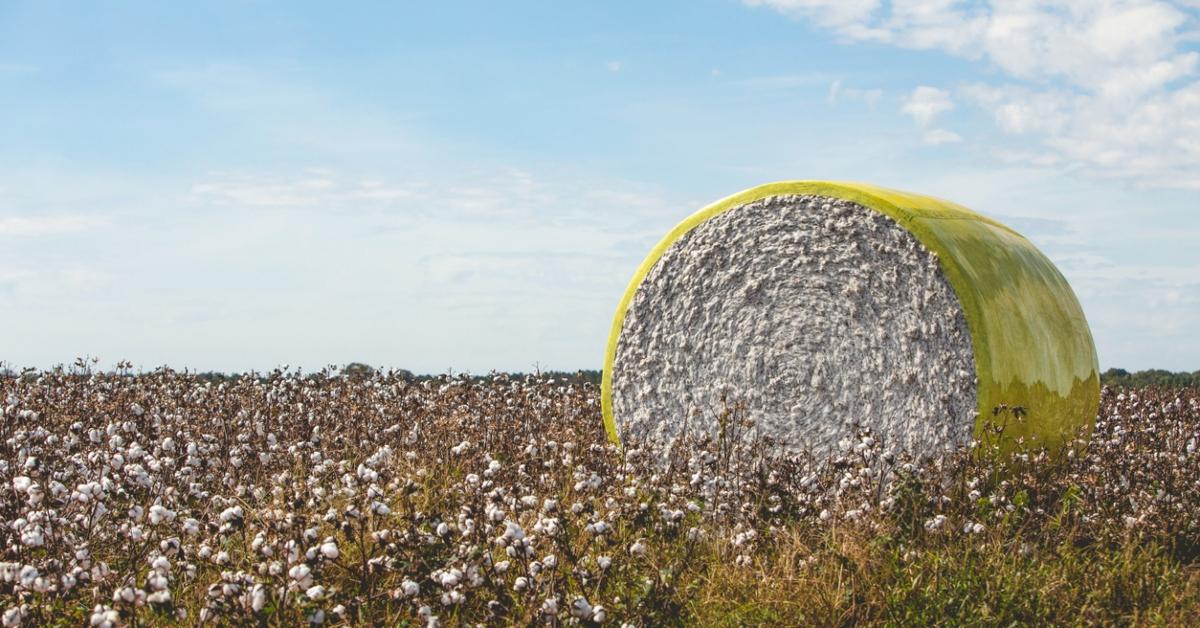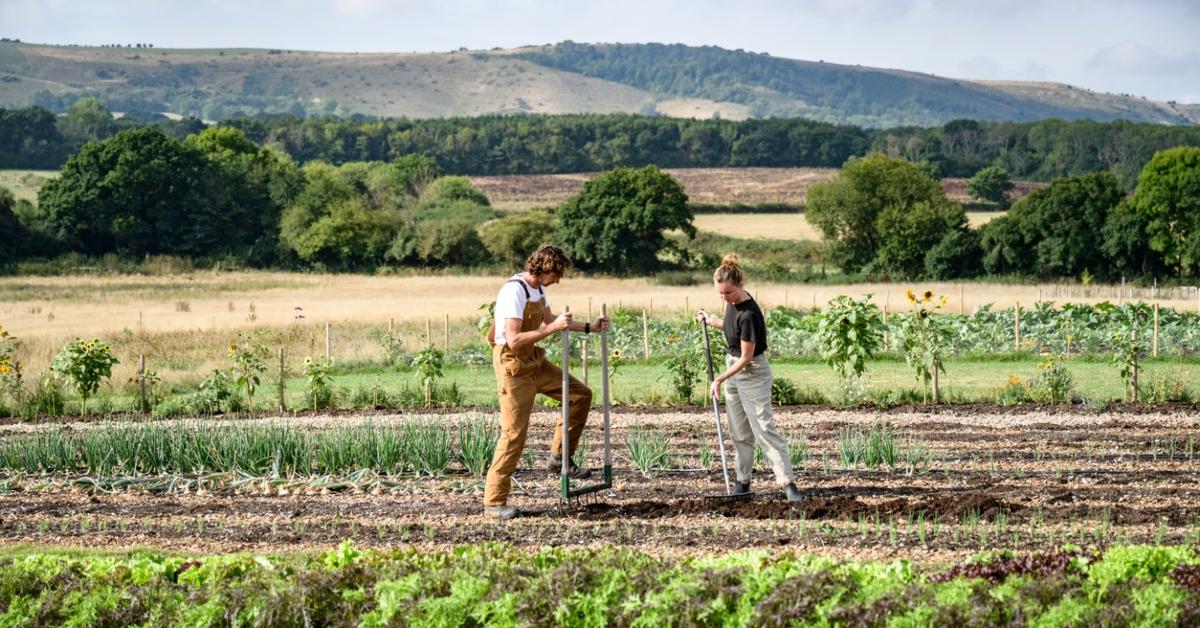Why Fashion Brands Are Starting to Embrace Regenerative Organic Cotton
Brands using regenerative cotton farming are revolutionizing clothing production by simultaneously restoring the environment in the process.
Published April 8 2024, 11:47 a.m. ET

Conventional cotton farming can be very harsh on the environment, contributing to soil erosion, and requiring a lot of pesticides and groundwater. Conversely, regenerative farming prioritizes restoring the environment while growing crops, creating a more sustainable farming system for both people and the planet.
Because of that, some fashion brands are beginning to adopt regenerative organic cotton farming techniques in their supply chains. Read on to learn more.

What is regenerative cotton?
Regenerative cotton is a term used to describe cotton grown through regenerative agriculture, which includes practices such as no-till farming and cover cropping, per Soil Health Institute. Cotton farming can often come with many environmental drawbacks, such as leaching harmful chemicals into the environment, soil erosion, and even water scarcity. As one of the most popular fibers on the planet, cotton is steadily in high demand, per AGood Company.
Regenerative agriculture practices are better for the environment, and are also more sustainable for farmers in the long run. By using practices that work to restore ecosystems and soil nutrients, as well as creating an agriculture system that promotes food equity, regenerative agriculture transforms farming into something that can serve both people and the environment.
It’s important to note that regenerative agriculture is not new, and has actually been a part of Indigenous culture for nearly 1,000 years, per the National Resources Defense Council (NRDC). In terms of regenerative cotton farming, farmers will often plant cover crops to maintain soil nutrients, opting for no-till farming to reduce erosion, and rotate crops, per CottonWorks.
Maggie’s Organics, a Fair Trade clothing brand, rolled out its first line of regenerative cotton clothing in 2024. And Sarah Queen, president of Maggie’s Organics, wants customers to know that there is a difference between regenerative cotton and regenerative organic cotton.
"One of the things we are seeing is brands highlighting their use of 'regenerative cotton' without it being regenerative organic cotton," Queen tells Green Matters exclusively in an email. "This concerns us as a potential form of greenwashing because, without the organic, farms can still be fed with toxic chemicals even if other practices are considered regenerative."
While both regenerative cotton and organic cotton are generally are better for the environment than conventional cotton, organic farming focuses on growing crops without synthetic pesticides, chemicals and fertilizers, whereas regenerative farming takes the process a step further and includes practices to restore the environment, per AGood Company.

These brands are using regenerative cotton and other fabrics.
As regenerative farming practices become more popular, more brands are releasing regenerative cotton clothing.
In February 2024, Maggie’s Organics released its Regenerative Organic Certified clothing line, and has become one of few brands adopting these farming practices. Other brands with Regenerative Organic Certified clothing collections include Patagonia with its Cotton for Change line, as well as Outerknown, and Made Trade.
Fashion brand Christy Dawn also sells regenerative cotton clothing, though the cotton does not appear to be certified organic.
There's a lot of greenwashing out there, and some brands may say they are using regenerative cotton but it might not be entirely true. A good rule of thumb is to look for the Regenerative Organic Certified distinction, or search the brand in the directory on Regenerative Organic Alliance.